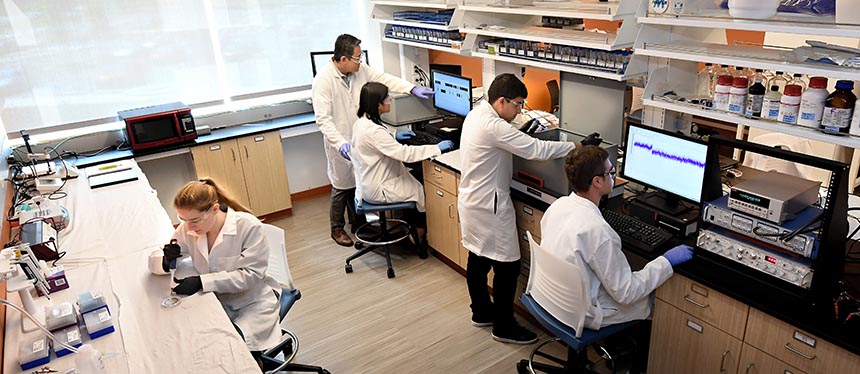Undergraduate Programs
Undergraduate Programs
BME Undergraduate Program
B.S in BME
Biomedical Engineering at Rowan offers an ABET-accredited Bachelor of Science in Biomedical Engineering.
Curriculum
Our BME curriculum offers a number of core courses that stress technical fundamentals and a number of specialized electives.
CUGS
Four Certificates of Undergraduate Study (CUGS) are hosted in the BME Department. They allow extra training in these areas with credentialing completed in the typical timeframe of the undergraduate degree.
Accelerated Degree Programs
Rowan Biomedical Engineering offers several accelerated combined degree programs.
Degree Program Enrichments
Rowan BME’s new flexible curriculum allows students to enrich their degree with certificate programs (CUGS) and/or additional degree programs (e.g. minors), affording students the freedom to receive advanced training and/or to explore areas of interest across the University.
